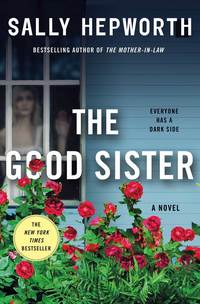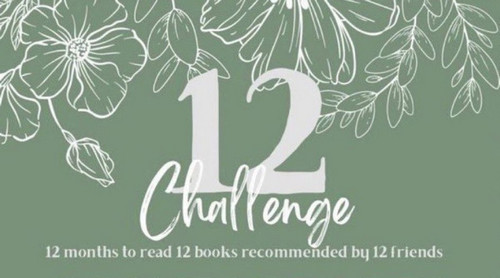 The Good Sister
The Good Sister
DETAILS: Publisher: St. Martin's Press Publication Date: April 12, 2021 Format: Hardcover Length: 306 Read Date: January 17-18, 2022

“I imagine, being twins, the bond is even more unique. If you get along, that is.” She laughs.
Beverly doesn’t seem to be expecting an answer, and I am glad. If she had, I might have told her the truth. That people without sisters think it’s all sunshine and lollipops or all blood and guts. But actually it’s always both. Sunshine and guts. Lollipops and blood. Good and bad. The bad is as essential to the relationship as the good.
Maybe the bad is even more important, because that’s what ties you together.
A Tale of Two Sisters
This is about a pair of fraternal/dizygotic twins and their efforts to provide one of them with the baby she and her husband can’t have.
Sort of. Kind of. Mostly. There’s a lot more going on, but that’s the core.
We get told the story of these two from the perspectives of each twin. Let’s break it down that way.
Fern Carter
Fern is a librarian—she’s not really comfortable with people. Or with anything other than her routine. She describes others toward the end as neurotypical, which was nice, but it’s not really necessary, she’s clearly on the Spectrum somewhere. She’s overly sensitive to stimulus, not fond of touch, and bad with interpersonal relations and communications.
She’s great with people in circumstances she’s comfortable in—for example, the library. Reading to kids in the children’s library, recommending books to patrons, and dealing with the homeless people seeking shelter and showers, for example.
She also knows how much she owes her sister. So when she discovers that despite her desire to become a mother, Rose can’t, Fern takes it upon herself to get pregnant for her.
And things become even more interesting for her from there.
Rose Castle
We get Rose’s perspective from a journal she’s keeping—she tells us right away that this is a therapy assignment and not something she’s doing on her own. This is to help her process her childhood and some things she’s going through right now—like marriage problems.
From their early childhood, she’s taken on the role of protector to her sister—that has never stopped. And her journal entries show all the ways she’s been doing that.
We get a lot more of Fern’s first-person narration than we do of Rose’s journals. But it’s Rose’s perception that sets the agenda for the novel.
A word of warning—Rose is molested by one of her mother’s boyfriends. It’s clear that’s what’s going on, but Hepworth doesn’t get too detailed about it. Very little space is given to it, but it’s there.
But…
This is a psychological/domestic thriller—that’s clear, it’s marketed as one. So, despite everything I just said, you know that not all is right with these two and their life. The trick is figuring out what’s wrong and why.
So, what did I think about The Good Sister?
I spent so much of this book wondering why my friend suggested this for me—why would anyone think I’d enjoy this? Yes, it was well-written; yes, it was suspenseful; yes, I was interested in the story; yes, I really wanted things to work out for Fern and to understand Rose; yes, the pages were flying by (I read this faster than anything I’ve read for a month or so); no, I was not enjoying the experience. It’s a good read, just not my thing. I wasn’t thinking of stopping, I just didn’t see why I should bother going on.
But for the last hundred pages or so, I started to wonder if I really was enjoying it. The last 40 +/- pages? I loved it. Seriously, I had a blast with it.
Hepworth did a really good job telling the story and keeping you guessing about what was going on, why X said something, or Y did something. You can get a pretty good idea about all that, and probably make some strong guesses. But you’re going to be a little bit off (at least). Until Hepworth gets you right where she wants you, and then she just tells you what you need to know. Then, it’s about taking all it in, while holding on for a very taut and tense conclusion.
This isn’t going to go down as one of my favorite books—but it’s going to be one I recommend to people (I have a list of them in mind already), and it’s one I’d recommend to any of you who dig psychological thrillers or just want something a little different. You’ll likely end up liking it far earlier than I did and wonder what’s wrong with me.


This post contains an affiliate link. If you purchase from it, I will get a small commission at no additional cost to you. As always, opinions are my own.
![]()




Read Irresponsibly, but please Comment Responsibly